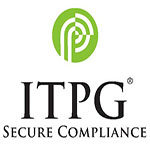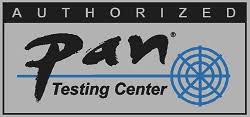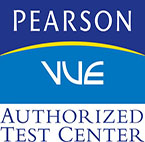Are you a Project Manager or a Project Leader?
The essential skills you need to lead your team.
It is hard to find a clear definitions between what a project manager and project leader does because their jobs overlap. Many times a project leader is a project manager with extra responsibilities.
A project manager is responsible for:
- Implementing product strategy, including product improvement, feature prioritization, costing, and release
- Setting deadlines and ensuring that projects remain on schedule
- Tracking sprint deliverables and providing updates to relevant stakeholders
- Ensuring the project is sticking to the agreed-upon budget
- Managing every moving part in relation to milestones, including schedules, documentation, staffing and, sometimes, HR concerns
A project leader is responsible for :
- Communicating with team members, including relaying briefs, connecting daily tasks to larger goals, and providing context and support
- Ensuring the team remains focused and on track, including addressing any conflicts or bottlenecks
- Creating a vision around the project to provide team members with a sense of purpose and motivation
- Offering less tangible and more emotional support to help a team stay focused on the ultimate goal
- Fostering a workplace atmosphere that helps bring out the best in his or her team
The main clear difference is that a project leader has more focus on the people rather than the more technical aspects of a given project.
Project leaders often deal with grey areas and rely on their soft skills to communicate.
Some of these soft skills are:
- decision making
- leadership abilities
- attitude
- instincts
- work ethic
- communication
- management
- honesty
- planning
Project managers deal with known tasks.
Some of these task are:
- timelines
- budgets
- scope
- deadlines
What Leadership Skills Are Essential?
Team Management
Project leaders are the captain of their team. They know how to set-up their team and each individual member for success. They need to make sure the whole team stays focused and works smoothly together with a shared goal and vision.
A project manager will design and bring a process to life in context of a team. They use management tools like cheerleading, motivation, goal setting, and others, as required.
Conflict resolution
- Project leaders need to step in and de-escalte and get teams back working productivlty together.
- Project managers dig into their project backlog and future sprint planning in a tool. These sprints include the work that frees up the other team to do their best work. Then they need to make sure current tasks are working towards that milestone and are assigned and given priority.
Leadership
- A project leader knows that people aren’t tasks. A strong project leader understands the most important investment is in the team they’ve built.
- Project managers need to be able to communicate the vision for a project to their team so that everyone has a shared vision of the bigger picture.
Motivation
- A good team leader will be able to read the signs of discouragement-and even burnout-and implement strategies to make sure that people stay both inspired and on track.
- Project managers should be able to set ethical project guidelines for the whole team to follow and be able to transparently communicate the progress of a project to both team members and clients. When project managers lead with integrity, the whole team follows suit.
Communication
- Project leaders need to keep team members productive and feeling appreciated and they need to be seen as objective, transparent, trustworthy, focused, and confident.
- Successful project management communication is about being there for everyone, being in touch with the real challenges of the project, understanding the real issues within the team who must deliver the project as well as understanding the issues of the sponsors who the team delivers the project for
Create Solutions
- A good project leader will be able to spot trouble-and, ideally, potential trouble-and then present and implement solutions that satisfy their team and any relevant stakeholders. They need to maintain a positive attitude and focus on what can be done rather than what is going wrong.
- It is the role of the project manager to ensure that issues are resolved effectively in order to keep the project on track. A project manager must be flexible enough to work within a project’s plan but readily adapt when necessary.
Here are a few ways you can differentiate yourself from the other project managers at your company:
- Demonstrate your interest and ability in managing human resources and team dynamics
- Set clear expectations for yourself and your team, and then make sure they’re met
- Contribute to resolving-not creating-conflicts
- Act as a cheerleader for every team member, ensuring that they’re both recognized and rewarded for accomplishments
- Take ownership over every aspect of the team’s progress, demonstrating that the buck stops with you and that you’re up to the task
Want to become a Project Management Professional?


































Leave a Reply
You must be logged in to post a comment.